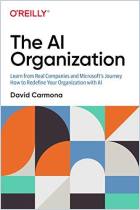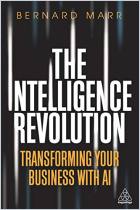Únase a getAbstract para acceder al resumen.

Únase a getAbstract para acceder al resumen.
Andrew Burgess
The Executive Guide to Artificial Intelligence
How to Identify and Implement Applications for AI in Your Organization
Palgrave Macmillan, 2017
¿De qué se trata?
Artificial intelligence isn’t a pipe dream. You can use it right now.
Recommendation
This overview of artificial intelligence (AI) by disruptive technology expert Andrew Burgess demystifies AI and explains a lot of its specialized vocabulary. Aptly named an “executive guide,” it is exceptionally clear and will be useful to anyone who wants a handle on AI. The introduction addresses business issues and the book’s framework offers a useful bridge to the more dense, more technical tomes on the market. Most businesspeople can learn all they need from Burgess, though his style can be somewhat intrusive. He loves abbreviations and some of the interviews seem like filler – but he delivers clear explanations of things that need explaining. getAbstract recommends Burgess’s breakdown of the past, present and likely future of AI to anyone interested in how technology is changing business as well as to investors, executives, entrepreneurs and students.
Summary
About the Author
Management consultant, author and speaker Andrew Burgess is an expert on disruptive technology. The Global Sourcing Association chose him as the 2017 Automation Champion of the World. A former CTO, he advises companies on AI and co-authored of The Rise of Legal Services Outsourcing.


















Comment on this summary